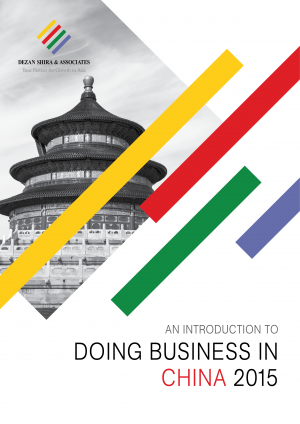Overtime Payments and Regulations in China
By Dezan Shira & Associates
Editor: Felicia Romain
Overtime regulations in China are complex and often seen as controversial. Employers must therefore understand the legalities that govern overtime in China in order to avoid potential discrepancies with the law.
Overtime regulations in China are typically regulated in the People’s Republic of China Labor Law. Employees can work for no more than eight hours per working day, but are able to exceed this amount under certain circumstances. According to Article 41 of the China Labor Law, employers should consult with trade unions in order to grant overtime. If permission is granted, employees can work longer hours than the usual eight hours per day, but no more than an extra three. In addition, accumulated overtime cannot exceed 36 hours a month, which equates to nine hours a week.
That said, overtime that exceeds the Chinese maximum of 36 hours a month is common, especially in factories. This in turn has led to an increase in labor disputes in the country. In the event of a dispute pertaining to overtime regulations, an employer is liable for claims, such as back-overtime, from the employee. Employers should therefore strive to be extra cautious regarding issues on overtime to safeguard themselves from potential disputes.
![]() RELATED: Payroll and Human Resource Services
RELATED: Payroll and Human Resource Services
Overtime defined by Chinese Law
For employees that work beyond eight hours a day, the employer should pay a minimum 150 percent of the employee’s basic salary for overtime worked. However, companies can structure overtime in several different ways. For example, a company can adopt either the Comprehensive Working Hour system or the Flexible Working Hour system – both of which usually do not entitle employees to typical overtime payments – but government approval must be sought for implementation.
The Comprehensive Working Hours system and Flexible Working Hours system are extremely similar, with only several minor differences. Under the Comprehensive Working Hour system, the employer and employee determine how many hours should be worked in the labor contract, and it is only if this amount is exceeded that overtime would have to be paid. Under the Flexible Working Hours system, an employer may require certain staff, such as high-ranking managerial staff and sales staff, to work in excess of 40 hours per week without paying overtime compensation. However, local rules may provide specific provisions regarding the overtime allowed.
In order for an employee to work overtime, employers must consult with the employees and labor unions first. As stated above, in the event that employees do work overtime, they must be paid 1.5 times their usual wage. Employers are not required to pay overtime compensation to high-ranking managers. If employees end up working on a weekend, they are to be paid double their regular wage or get an additional day off during the week. Finally, if employees work on a statutory holiday, they must be paid three times their normal wage.
|
Asia Briefing Ltd. is a subsidiary of Dezan Shira & Associates. Dezan Shira is a specialist foreign direct investment practice, providing corporate establishment, business advisory, tax advisory and compliance, accounting, payroll, due diligence and financial review services to multinationals investing in China, Hong Kong, India, Vietnam, Singapore and the rest of ASEAN. For further information, please email china@dezshira.com or visit www.dezshira.com. Stay up to date with the latest business and investment trends in Asia by subscribing to our complimentary update service featuring news, commentary and regulatory insight. |
![]()
Human Resources and Payroll in China 2015
This edition of Human Resources and Payroll in China, updated for 2015, provides a firm understanding of China’s laws and regulations related to human resources and payroll management – essential information for foreign investors looking to establish or already running a foreign-invested entity in China, local managers, and HR professionals needing to explain complex points of China’s labor policies.
 Employing Foreign Nationals in China
Employing Foreign Nationals in China
In this issue of China Briefing, we have set out to produce a guide to employing foreign nationals in China, from the initial step of applying for work visas, to more advanced subjects such as determining IIT liability and optimizing employee income packages for tax efficiency. Lastly, recognizing that few foreigners immigrate to China on a permanent basis, we provide an overview of methods for remitting RMB abroad.
 An Introduction to Doing Business in China 2015
An Introduction to Doing Business in China 2015
Doing Business in China 2015 is designed to introduce the fundamentals of investing in China. Compiled by the professionals at Dezan Shira & Associates, this comprehensive guide is ideal not only for businesses looking to enter the Chinese market, but also for companies that already have a presence here and want to keep up-to-date with the most recent and relevant policy changes.
- Previous Article China Announces 2016 Official Holiday Schedule
- Next Article Labor Dispute Management in China – New Issue of China Briefing Magazine








